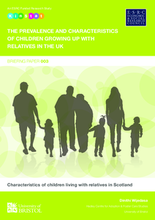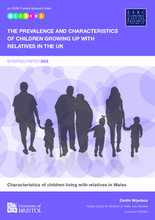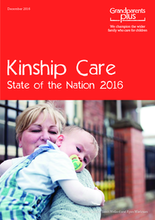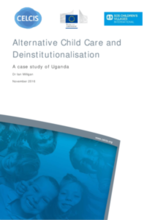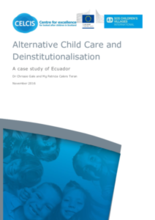Displaying 341 - 350 of 608
This briefing paper, which is the third in a series, provides a brief overview of the characteristics of the children growing up with relatives in Scotland.
This briefing paper, which is the second in a series, provides a brief overview of the characteristics of the children growing up with relatives in Wales.
This podcast episode, 'Supporting Kinship Caregivers Part 1', is the first of a two-part series showcasing successful examples of kinship navigator programs connecting kinship families with available services.
This video from The Guardian discusses how six weeks after the Calais migrant camp was demolished, unaccompanied minors were transferred around France and are still waiting to hear from the Home Office.
This report is based on the largest ever national survey of kinship carers. It explores the experience of kinship families, and draws comparison with findings from a 2010 Survey.
In this podcast episode, University of Melbourne researcher Dr. Meredith Kiraly joins Patricia Karvelas in The Drawing Room along with Nic, who is the full-time carer of her 2 year old nephew.
This paper draws on the literature and practice examples from around the world to examine the fundamental challenges experienced by States in their efforts to implement the 'suitability principle,' as described in the Guidelines for the Alternative Care for Children.
This report is a case study on alternative care arrangements and deinstitutionalisation in Uganda.
The European Commission Directorate-General for International Cooperation and Development (DG DEVCO) commissioned SOS Children’s Villages International to undertake case studies of arrangements for ‘alternative child care’ in six non-European countries across three continents to help inform the EU’s future strategy for provision of support for children in countries outside Europe. This report is a case study of one of the six countries, Ecuador.
Within the context of kinship care, the main objectives of this work are to study the characteristics of contact between foster children and their birth parents, and their relationship with key variables of fostering, the children and their kinship caregivers.

